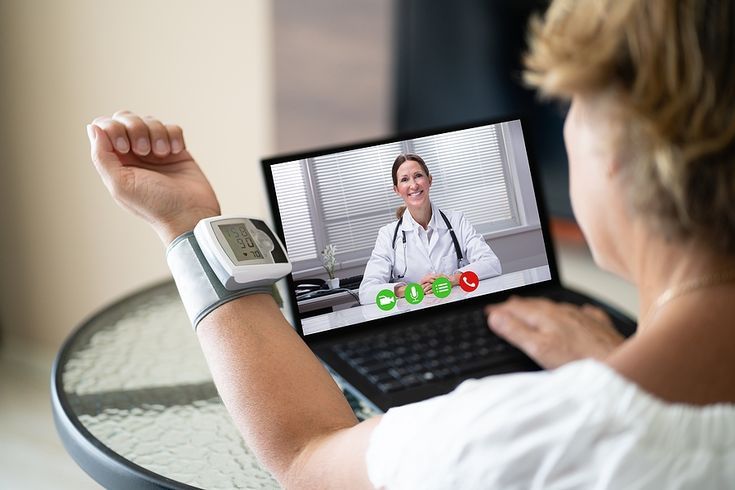



Why Primary Care Physicians (PCPs) Need Smarter Care Management to Reduce Burnout
Why Primary Care Physicians (PCPs) Need Smarter Care Management to Reduce Burnout
Why Primary Care Physicians (PCPs) Need Smarter Care Management to Reduce Burnout
Why Primary Care Physicians (PCPs) Need Smarter Care Management to Reduce Burnout
Posted on :
Sep 5, 2025
Sep 5, 2025
Sep 5, 2025
Share on:
Share this Article :
Introduction
Primary Care Physicians (PCPs) are the cornerstone of the healthcare system, managing everything from preventive care to chronic disease management. However, as the burden of administrative tasks and patient care complexity continues to rise, PCPs face unprecedented levels of stress and burnout. Smarter care management solutions are no longer a luxury, they’re a necessity to sustain both physician well-being and patient outcomes.

The Rising Tide of PCP Burnout
Burnout among physicians, especially PCPs, has reached alarming levels. According to a 2023 Medscape Physician Burnout & Depression Report, 53% of physicians reported feeling burned out, with primary care specialties ranking among the highest. Another study by the Annals of Internal Medicine estimated that physician burnout costs the U.S. healthcare system $4.6 billion annually, primarily due to turnover and reduced clinical hours (Shanafelt et al., 2019).
PCPs are disproportionately affected because of their front-line role. They juggle high patient volumes, chronic disease management, preventive screenings, and follow-ups—all while navigating electronic medical records (EMRs) and administrative documentation. The result? Less time for meaningful patient interactions and growing dissatisfaction with the profession.
Key Drivers of PCP Burnout
Administrative Overload
Research shows that physicians spend nearly two hours on documentation for every hour of direct patient care (American Medical Association, 2022). EMRs, designed primarily for billing and compliance, often complicate rather than streamline workflows.
Chronic Disease Complexity
More than 6 in 10 adults in the U.S. live with a chronic disease, and 4 in 10 have two or more (CDC, 2022). PCPs shoulder much of this burden, with limited tools to track patient progress between visits.
Fragmented Care Coordination
Transitions of care (e.g., post-hospital discharge) are prone to errors and miscommunication, significantly increasing readmission risks. Without structured processes for Transitional Care Management (TCM), PCPs are left with gaps in oversight.
High Patient Expectations with Limited Time
Patients increasingly expect proactive, continuous engagement. Yet, PCPs typically get just 15 minutes per visit, making it nearly impossible to address acute issues, preventive care, and chronic conditions effectively.

The Role of Technology in Reducing Burnout
The integration of technology, when designed with PCPs in mind, can ease the administrative load and enhance care quality. Unlike traditional EMRs that focus on documentation, modern care management platforms:
Provide automation and AI-driven workflows that cut down repetitive tasks.
Offer seamless integration with EMRs, minimizing data silos.
Deliver analytics and patient engagement tools that empower providers to act on real-time insights rather than retrospective data.
By simplifying workflows, PCPs can reclaim valuable time, focus on clinical decision-making, and strengthen patient relationships.

How Clinicus Is Addressing PCP Challenges
This is where Clinicus makes a real difference.
Purpose-built for care management: Unlike EMRs, Clinicus is designed to manage CCM, RPM, and TCM programs end-to-end.
Seamless EMR integration: Ensures providers don’t waste time duplicating data entry.
Automated, scalable workflows: Streamline repetitive tasks, freeing PCPs to focus on patient care.
Improved patient engagement: Continuous monitoring and touchpoints keep patients more connected, reducing avoidable hospitalizations.
By complementing EMRs and easing the administrative burden, Clinicus empowers PCPs to achieve better outcomes without adding more strain.
Conclusion
The burnout crisis facing PCPs isn’t just a workforce issue—it’s a public health concern. As the backbone of healthcare, primary care must be protected and supported with smarter systems that align with modern patient needs. Smarter care management, supported by purpose-built platforms like Clinicus, can help reduce administrative burden, improve engagement, and restore balance for physicians.
Reducing PCP burnout isn’t only about saving providers—it’s about strengthening the entire healthcare ecosystem.
Introduction
Primary Care Physicians (PCPs) are the cornerstone of the healthcare system, managing everything from preventive care to chronic disease management. However, as the burden of administrative tasks and patient care complexity continues to rise, PCPs face unprecedented levels of stress and burnout. Smarter care management solutions are no longer a luxury, they’re a necessity to sustain both physician well-being and patient outcomes.

The Rising Tide of PCP Burnout
Burnout among physicians, especially PCPs, has reached alarming levels. According to a 2023 Medscape Physician Burnout & Depression Report, 53% of physicians reported feeling burned out, with primary care specialties ranking among the highest. Another study by the Annals of Internal Medicine estimated that physician burnout costs the U.S. healthcare system $4.6 billion annually, primarily due to turnover and reduced clinical hours (Shanafelt et al., 2019).
PCPs are disproportionately affected because of their front-line role. They juggle high patient volumes, chronic disease management, preventive screenings, and follow-ups—all while navigating electronic medical records (EMRs) and administrative documentation. The result? Less time for meaningful patient interactions and growing dissatisfaction with the profession.
Key Drivers of PCP Burnout
Administrative Overload
Research shows that physicians spend nearly two hours on documentation for every hour of direct patient care (American Medical Association, 2022). EMRs, designed primarily for billing and compliance, often complicate rather than streamline workflows.
Chronic Disease Complexity
More than 6 in 10 adults in the U.S. live with a chronic disease, and 4 in 10 have two or more (CDC, 2022). PCPs shoulder much of this burden, with limited tools to track patient progress between visits.
Fragmented Care Coordination
Transitions of care (e.g., post-hospital discharge) are prone to errors and miscommunication, significantly increasing readmission risks. Without structured processes for Transitional Care Management (TCM), PCPs are left with gaps in oversight.
High Patient Expectations with Limited Time
Patients increasingly expect proactive, continuous engagement. Yet, PCPs typically get just 15 minutes per visit, making it nearly impossible to address acute issues, preventive care, and chronic conditions effectively.

The Role of Technology in Reducing Burnout
The integration of technology, when designed with PCPs in mind, can ease the administrative load and enhance care quality. Unlike traditional EMRs that focus on documentation, modern care management platforms:
Provide automation and AI-driven workflows that cut down repetitive tasks.
Offer seamless integration with EMRs, minimizing data silos.
Deliver analytics and patient engagement tools that empower providers to act on real-time insights rather than retrospective data.
By simplifying workflows, PCPs can reclaim valuable time, focus on clinical decision-making, and strengthen patient relationships.

How Clinicus Is Addressing PCP Challenges
This is where Clinicus makes a real difference.
Purpose-built for care management: Unlike EMRs, Clinicus is designed to manage CCM, RPM, and TCM programs end-to-end.
Seamless EMR integration: Ensures providers don’t waste time duplicating data entry.
Automated, scalable workflows: Streamline repetitive tasks, freeing PCPs to focus on patient care.
Improved patient engagement: Continuous monitoring and touchpoints keep patients more connected, reducing avoidable hospitalizations.
By complementing EMRs and easing the administrative burden, Clinicus empowers PCPs to achieve better outcomes without adding more strain.
Conclusion
The burnout crisis facing PCPs isn’t just a workforce issue—it’s a public health concern. As the backbone of healthcare, primary care must be protected and supported with smarter systems that align with modern patient needs. Smarter care management, supported by purpose-built platforms like Clinicus, can help reduce administrative burden, improve engagement, and restore balance for physicians.
Reducing PCP burnout isn’t only about saving providers—it’s about strengthening the entire healthcare ecosystem.
Browse Our Resources
Browse Our Resources
Browse Our Resources
Ready To Elevate Patient Care?
VBC@sciometrix.com
+1 833-799-8881
306 S Washington Ave, 6th Floor Royal Oak, Michigan - 48067
CARE MANAGEMENT
VALUE-BASED CARE
HEALTHCARE SOLUTIONS

Ready To Elevate
Patient Care?
VBC@sciometrix.com
+1 833-799-8881
306 S Washington Ave, 6th Floor Royal Oak, Michigan - 48067
CARE MANAGEMENT
VALUE-BASED CARE
HEALTHCARE SOLUTIONS

Ready To Elevate
Patient Care?
VBC@sciometrix.com
+1 833-799-8881
306 S Washington Ave, 6th Floor Royal Oak, Michigan - 48067
CARE MANAGEMENT
VALUE-BASED CARE
HEALTHCARE SOLUTIONS

Ready To Elevate Patient Care?
VBC@sciometrix.com
+1 833-799-8881
306 S Washington Ave, 6th Floor Royal Oak, Michigan - 48067
CARE MANAGEMENT
VALUE-BASED CARE
HEALTHCARE SOLUTIONS



































